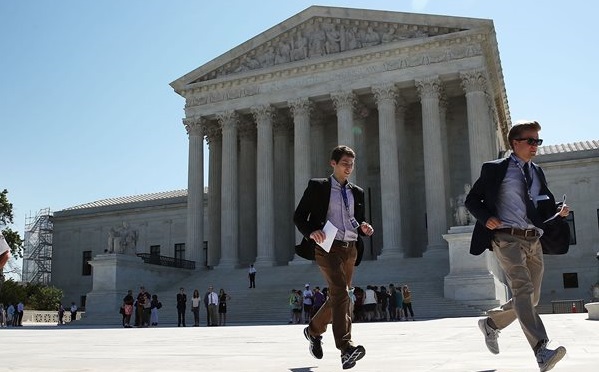SUPREME COURT TELLS DEPARTMENT OF LABOR NOT TO MESS WITH FEDERAL LAW
In a long running story, about fifty years long, the DOL found out the hard way that it did no turn the government. Congress did.
In 1966 Congress passed a law to the effect that automobile salesmen and service men were exempt overtime regulations, due to the fact that a great deal of automobile service occurred during the wee hours of the morning, as professional drivers frequently ran all night on long distance journeys. The salesmen were included as well, as they were also frequently the servicemen and Congress wished to avoid classification arguments.
Four years later, in typical governmental fashion, the DOL decided to exclude car-parts service providers from the exemption, reasoning that they only sold advice on maintaining the parts, not actual parts, in effect obviating the entire purpose of the exemption in the first place by making it difficult to get an expert opinion when you most needed it.
Three years later the court sent the DOL back to its room with instructions to stop trying to reinterpret federal law to its own benefit.
All was quiet for the next thirty eight years, with the DOL making compliant noises but not actually doing anything about their stricken down regulation.
All of the sudden, in the year 2011, the DOL announced that it was going to uphold an act upon its court rejected rule, and tried to declare service advisers as nonexempt. This led to a lawsuit which is now in the courts.
The local district upheld the original court ruling that the DOL was not entitled to rewrite the law. The case went to the infamous ninth circuit, where the judges, slanted towards big government as they are, decided that Congressional law should defer to the DOL regulation. Needless to say, the Supreme Court disagreed.
In its decision, which is not the final word yet, the Supreme Court says that for thirty eight years the DOL has accepted the ruling not to reinterpret the law. That it does so now is an act without a foundation and cannot be used as a deference point for anything.
The ruling sends the case back to the ninth circuit with directions to provide a ruling as opposed to a cop out, from where it will probably come back around to the Supreme Court for a final ruling sometime next year.

POST A COMMENT